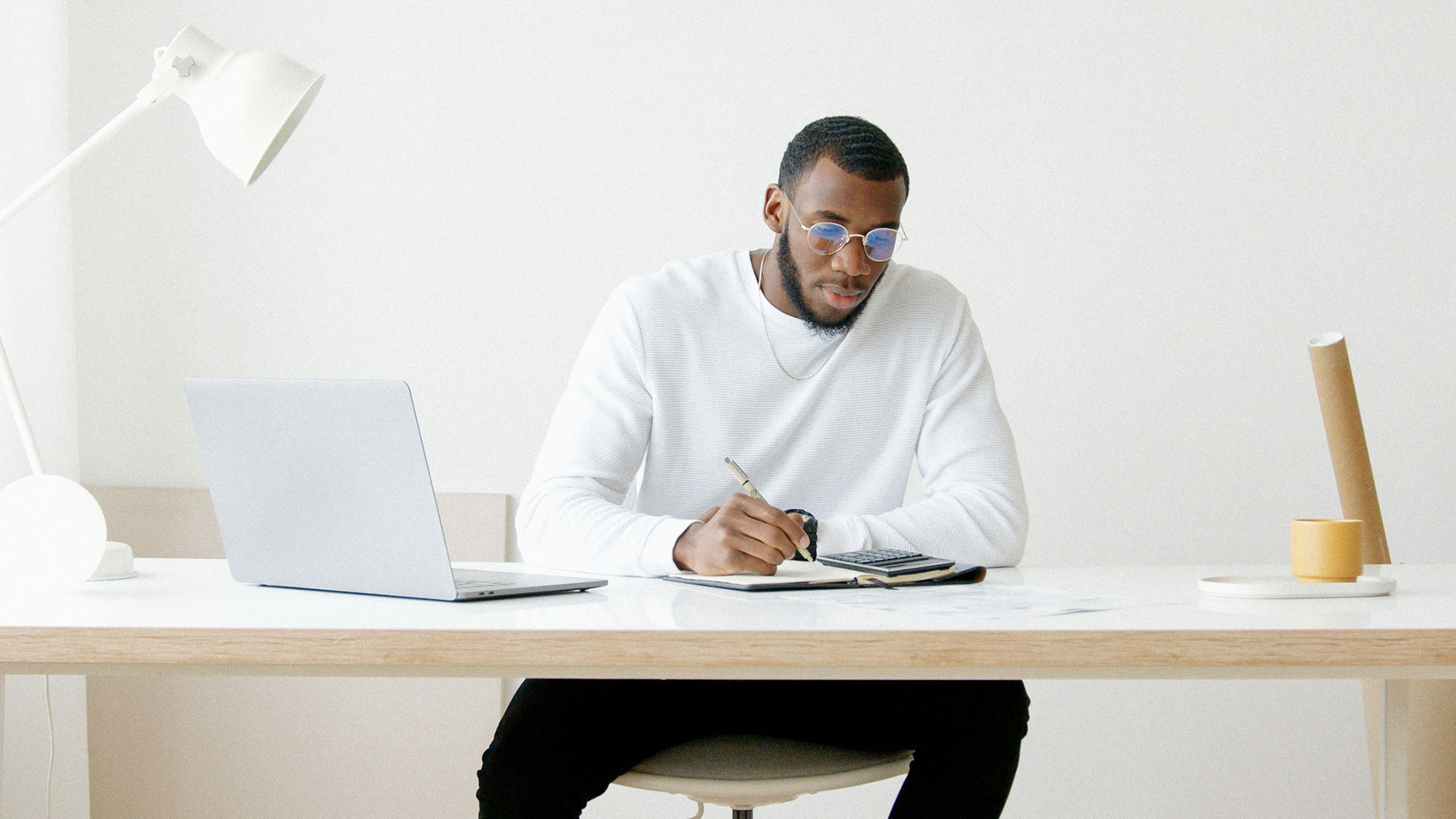Active joy: Because happiness is trainable
Happiness is not passive. Oftentimes, we know what we need to do but knowledge alone is not enough: it’s the application of that knowledge that truly matters. To embark on a path towards a life of more happiness, health, and compassion requires a decision and active effort. Indeed, it needs time but not as much as you think. With as little as 45 minutes a day, you will be astonished by the results you see. And you are not alone, you can do it together with us!
21 days of challenges!
Every day for three weeks, we will give our physical, mental, and social health a boost — because all areas are equally important. The three activities a day will be varied, fun, and can be done by anyone no matter who you are or where you come from.
 Physical
Physical
Taking care of our bodies builds our confidence and makes us
feel energized.
 Mental
Mental
Adapting a positive mindset is hard. But trainable. It is the an
effective way to feel more fulfilled.
 Social
Social
Kindness to others, but also ourselves, is the currency of
happiness.
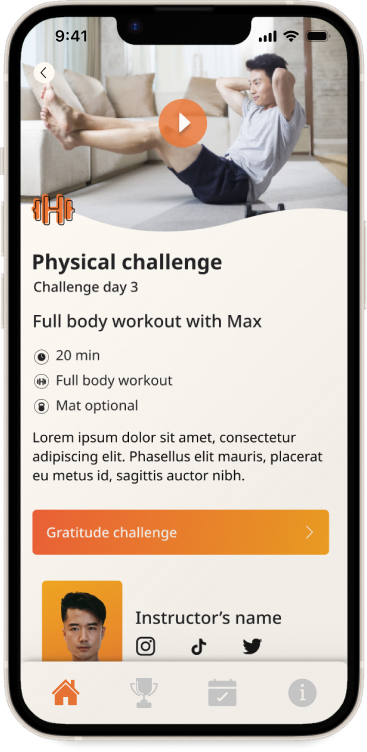
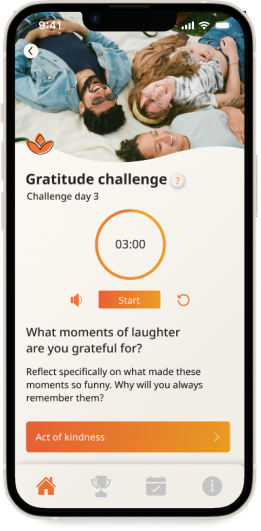
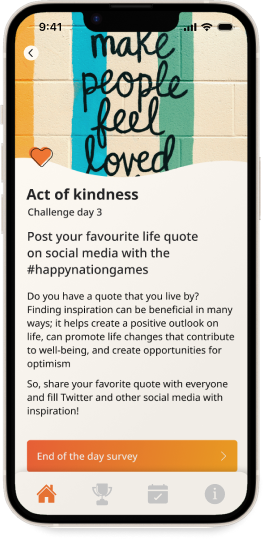
Our founders
Two resilient optimists, each on their individual paths toward well-being, met in the energetic setting of a Berlin Hot Yoga Studio in 2010. Fueled by their curiosity, relentless hunger for personal growth, and a shared aspiration to cultivate happiness and better health, they decide to help others do the same. This has grown into the big vision that is Happy Nation.
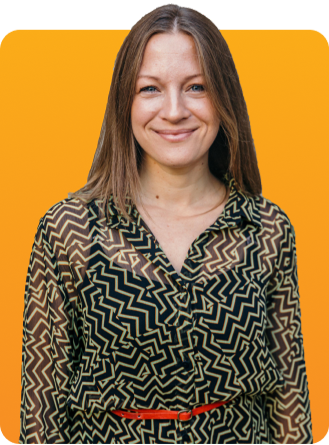

Amelia
Adam
FAQs
Like the Olympics, but for everyone! The Happy Nation Games is a 21-day challenge where we take care of our physical, mental and social well-being in less than 30 minutes a day. Taking care of these areas will help everyone to become a happier and more compassionate human being. And better yet, everybody can participate, and win prizes!
It’s like the Olympic Games but for holistic wellbeing where everyone can take part. When we say holistic, we mean that we put effort into our physical, mental, and social well-being, equally. In the Games, participants will alternate daily between short full-body workouts and stretching. These will take about 25 minutes a day. For 3 minutes a day, participants will engage in a gratitude exercise. Every day, the app provides a different topic. And, lastly, participants will receive a prompt for a daily act of kindness.
Taking part is as convenient as it gets. We built a web-based app, which can be accessed with an URL. This can then be saved to the home screen of your smartphone, so you can always easily access it anytime. Also, you always see the challenges according to your time-zone. That means, depending on the time, someone in Hawaii could still be one day behind another person opening the app in Europe. The only thing you have to think about is opening the app every day to see the daily challenges.
It’s easy – to be eligible to win a daily prize, all you need to do is complete the three challenges of the day and film yourself doing the physical one! Don’t worry, you don’t have to show your face but we will need to see proof that you finished it. You will be asked to upload it on Instagram with the hashtag #HappyNationGames. If you are not into filming yourself and posting the video, don’t worry. You can also win badges and medals without having to share on social media.
Yes, it is completely free to participate, and for everyone. We want to encourage our participants to become happier, healthier and more compassionate human beings. We will challenge our physical, mental, and social health in less than 45 minutes every day. We want to bring people together in doing so. No matter who you are, or where you come from!
A few words from our community…
“It was absolutely fantastic, I had so much fun”
– Steve
“I still benefit from the Happy Nation Games, the gratitude challenge is so powerful”
– Maria
“It’s just a good restart to a happier me. I will do it again.”
– Stephany
Happy nation blogs
Shared happiness is double happiness
Connect to our community!
Active joy: Because Happiness is trainable
Happiness is not passive. Oftentimes, we know what we need to do but knowledge alone is not enough: it’s the application of that knowledge that truly matters. To embark on a path towards a life of more happiness, health, and compassion requires a decision and active effort.
Indeed, it needs time but not as much as you think. With as little as 45 minutes a day, you will be astonished by the results you see. And you are not alone, you can do it together with us!
21 days of challenges!
Every day for three weeks, we will give our physical, mental, and social health a boost — because all areas are equally important. The three activities a day will be varied, fun, and can be done by anyone no matter who you are or where you come from.
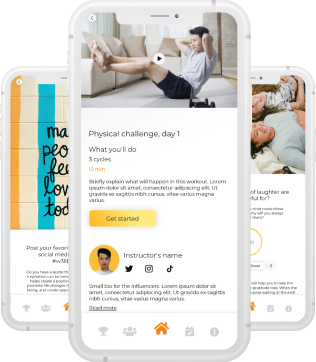

Let’s get our bodies moving because fitness builds our confidence and energizes us

Train our minds to adopt a positive mindset and recognize gratitude in our lives regularly

Show kindness to ourselves and others because kindness is the currency of happiness
FAQs
Like the Olympics, but for everyone! The Happy Nation Games is a 21-day challenge where we take care of our physical, mental and social well-being in less than 30 minutes a day. Taking care of these areas will help everyone to become a happier and more compassionate human being. And better yet, everybody can participate, and win prizes!
It’s like the Olympic Games but for holistic wellbeing where everyone can take part. When we say holistic, we mean that we put effort into our physical, mental, and social well-being, equally. In the Games, participants will alternate daily between short full-body workouts and stretching. These will take about 25 minutes a day. For 3 minutes a day, participants will engage in a gratitude exercise. Every day, the app provides a different topic. And, lastly, participants will receive a prompt for a daily act of kindness.
Taking part is as convenient as it gets. We built a web-based app, which can be accessed with an URL. This can then be saved to the home screen of your smartphone, so you can always easily access it anytime. Also, you always see the challenges according to your time-zone. That means, depending on the time, someone in Hawaii could still be one day behind another person opening the app in Europe. The only thing you have to think about is opening the app every day to see the daily challenges.
It’s easy – to be eligible to win a daily prize, all you need to do is complete the three challenges of the day and film yourself doing the physical one! Don’t worry, you don’t have to show your face but we will need to see proof that you finished it. You will be asked to upload it on Instagram with the hashtag #HappyNationGames. If you are not into filming yourself and posting the video, don’t worry. You can also win badges and medals without having to share on social media.
Yes, it is completely free to participate, and for everyone. We want to encourage our participants to become happier, healthier and more compassionate human beings. We will challenge our physical, mental, and social health in less than 45 minutes every day. We want to bring people together in doing so. No matter who you are, or where you come from!
A few words from our community…
Shared happiness is double happiness
Connect to our community! Find us here:
Active joy: Because happiness is trainable
Happiness is not passive. Oftentimes, we know what we need to do but knowledge alone is not enough: it’s the application of that knowledge that truly matters. To embark on a path towards a life of more happiness, health, and compassion requires a decision and active effort. Indeed, it needs time but not as much as you think. With as little as 45 minutes a day, you will be astonished by the results you see. And you are not alone, you can do it together with us!
21 days of challenges!
Every day for three weeks, we will give our physical, mental, and social health a boost — because all areas are equally important. The three activities a day will be varied, fun, and can be done by anyone no matter who you are or where you come from.
 Physical
Physical
Taking care of our bodies builds our confidence and makes us
feel energized.
 Mental
Mental
Adapting a positive mindset is hard. But trainable. It is the an
effective way to feel more fulfilled.
 Social
Social
Kindness to others, but also ourselves, is the currency of
happiness.



Our founders
Two resilient optimists, each on their individual paths toward well-being, met in the energetic setting of a Berlin Hot Yoga Studio in 2010. Fueled by their curiosity, relentless hunger for personal growth, and a shared aspiration to cultivate happiness and better health, they decide to help others do the same. This has grown into the big vision that is Happy Nation.


Amelia
Adam
FAQs
Like the Olympics, but for everyone! The Happy Nation Games is a 21-day challenge where we take care of our physical, mental and social well-being in less than 30 minutes a day. Taking care of these areas will help everyone to become a happier and more compassionate human being. And better yet, everybody can participate, and win prizes!
It’s like the Olympic Games but for holistic wellbeing where everyone can take part. When we say holistic, we mean that we put effort into our physical, mental, and social well-being, equally. In the Games, participants will alternate daily between short full-body workouts and stretching. These will take about 25 minutes a day. For 3 minutes a day, participants will engage in a gratitude exercise. Every day, the app provides a different topic. And, lastly, participants will receive a prompt for a daily act of kindness.
Taking part is as convenient as it gets. We built a web-based app, which can be accessed with an URL. This can then be saved to the home screen of your smartphone, so you can always easily access it anytime. Also, you always see the challenges according to your time-zone. That means, depending on the time, someone in Hawaii could still be one day behind another person opening the app in Europe. The only thing you have to think about is opening the app every day to see the daily challenges.
It’s easy – to be eligible to win a daily prize, all you need to do is complete the three challenges of the day and film yourself doing the physical one! Don’t worry, you don’t have to show your face but we will need to see proof that you finished it. You will be asked to upload it on Instagram with the hashtag #HappyNationGames. If you are not into filming yourself and posting the video, don’t worry. You can also win badges and medals without having to share on social media.
Yes, it is completely free to participate, and for everyone. We want to encourage our participants to become happier, healthier and more compassionate human beings. We will challenge our physical, mental, and social health in less than 45 minutes every day. We want to bring people together in doing so. No matter who you are, or where you come from!
A few words from our community…
“It was absolutely fantastic, I had so much fun”
– Steve
“I still benefit from the Happy Nation Games, the gratitude challenge is so powerful”
– Maria
“It’s just a good restart to a happier me. I will do it again.”
– Stephany
Happy nation blogs
Shared happiness is double happiness
Connect to our community!

